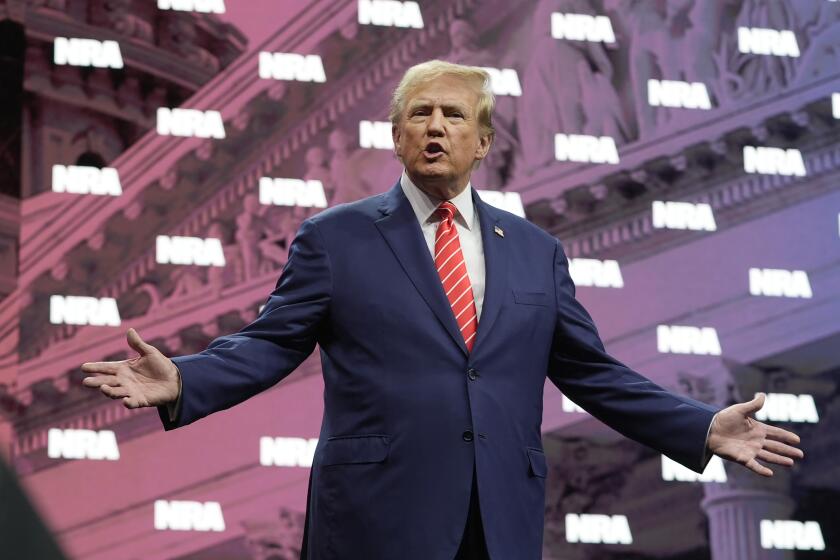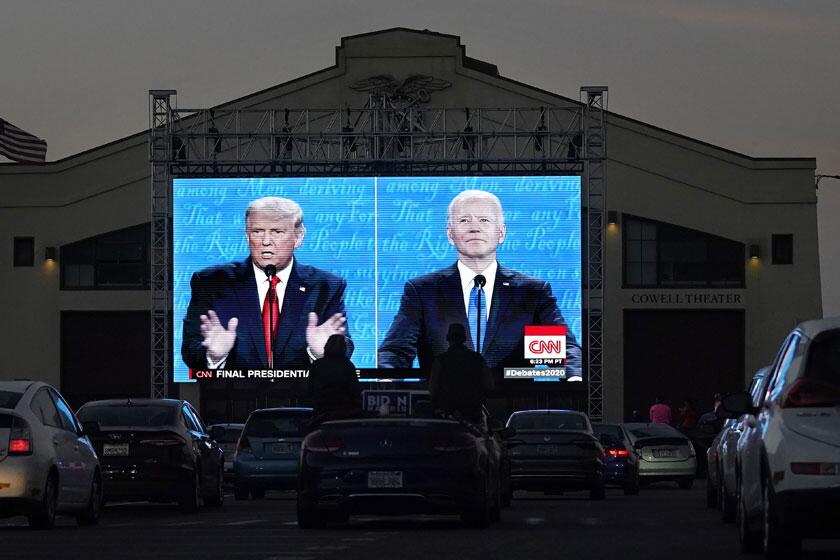Clinton Acts to Aid Vietnam Ties : Diplomacy: U.S. will stop opposing international loans to Hanoi. The decision draws mixed reaction from the Vietnamese-American community in O.C.
The Clinton Administration, in a far-reaching but controversial departure from previous U.S. policy, announced Friday that it will no longer seek to prevent international financial institutions from making development loans to Vietnam.
The decision, which is expected to pave the way for American companies to compete with their European and Asian counterparts for lucrative business deals with Hanoi, represents a significant step toward the resumption of relations between the United States and Vietnam, which were broken off after the Vietnam War.
Orange County’s Vietnamese-American community, the largest in the United States, was split on the move. While some hailed it as helping to improve the Asian nation’s standard of living, others expressed fears that it will strengthen the Communist government’s hold.
“The money will not get to the Vietnamese people,” warned Duy Sinh Nguyen Duc Phuc Khoi, president of the Westminster-based Assn. of Vietnamese Press & Media in U.S.A. “It will prolong the oppressive control of the Hanoi government.”
Although the Administration stopped short of lifting the trade embargo imposed on Vietnam after the Communist victory in 1975, the decision sets in motion a process that may result soon in a relaxation of the trade restrictions.
The decision’s most immediate effect is that the United States no longer will oppose a French- and Japanese-led plan to refinance $140 million in back debts owed by Vietnam to the International Monetary Fund. This, in turn, would enable Hanoi to apply for new loans from the IMF and the World Bank to help the country develop its economy.
Before U.S. companies can compete with the Japanese and the French for the projects that those loans would finance, the embargo would have to be at least partly lifted--a step that Administration officials have conceded is under active consideration.
Administration officials said the purpose of Friday’s step was to reward Hanoi for its recent efforts to account for the 2,200 American servicemen listed as missing in Indochina since the war.
But President Clinton said in a written statement that any more progress toward establishing full relations with Vietnam will depend on further Vietnamese efforts to help account for the remaining servicemen.
“Progress to date is simply not sufficient to warrant any change in our trade embargo or any further steps toward normalization,” Clinton said.
A delegation led by Assistant Secretary of State Winston Lord will go to Vietnam to press for a further accounting, the President added.
In coupling the gesture to Hanoi with a warning that further economic concessions will depend on even greater cooperation, Clinton was trying to balance the advice of his foreign policy advisers with the anguish and concern expressed by veterans groups and POW-MIA activists representing the families of missing servicemen.
The family groups had lobbied hard to forestall the loan decision, arguing that it could undermine the trade embargo and weaken whatever leverage Washington has to win a fuller accounting from Hanoi of missing servicemen.
“The President has made a decision which gives vital support to Vietnamese and international business while undercutting POW-MIA . . . interests,” said Ann Mills Griffiths, executive director of the National League of Families. “Though possibly well-intentioned, the Administration has discarded the most effective U.S. leverage to get real results.”
Clinton said he shares the families’ “belief that our policy toward Vietnam must be driven not by commercial interests but by the overriding purpose of achieving further progress toward the fullest possible accounting of our POW-MIAs.”
But in the controversial decision announced after weeks of discussions, it also was clear that Clinton had decided to reject the family groups’ appeals in favor of the counsel of his foreign policy advisers, who have argued that the Vietnamese have done as much as they are likely to do to resolve the POW-MIA issue without some U.S. gesture in return.
Defending the Administration’s anticipated decision in a Senate floor speech Thursday night, Sen. John Kerry (D-Mass.), the former chairman of a yearlong congressional inquiry into the POW-MIA issue, noted that Vietnam finally has opened its secret POW archives to U.S. investigators and surrendered thousands of wartime photographs and other documents over the last year.
“But there is now a great risk of seeing this process slowed down or even stopped as a result of our intransigence,” Kerry warned. “If they (the Vietnamese) start to get fed up because the United States doesn’t reciprocate, we’re not going to have an accounting process.”
The family groups, as well as some lawmakers on Capitol Hill, took strong issue with that argument, however.
Saying that the information provided by Vietnam this year actually has accounted for only one missing serviceman, Griffiths sharply disputed the Administration’s contention that the Vietnamese were being cooperative.
Rep. Benjamin A. Gilman (R-N.Y.), the ranking minority member of the House Foreign Affairs Committee, denounced the decision as “reprehensible” and expressed skepticism that the embargo would not be undercut by the new policy toward IMF and World Bank loans.
“Regardless of the terms in which this decision is couched, it is a major step toward normalization since it will create enormous additional pressures to end the U.S. trade embargo,” Gilman said.
Bowing to pressure from allies and U.S. businesses, Clinton had been on the verge of announcing the IMF loan decision last April.
But then a document surfaced in Moscow that re-energized the long and bitter POW debate by appearing to confirm that Vietnam actually held nearly twice as many American POWs as the 591 who were repatriated in 1973.
A Russian translation of a secret North Vietnamese Politburo report, the document discovered in the archives of the former Soviet Communist Party, threw the delicate diplomacy of normalization into a tailspin from which it recovered only after the authenticity of the document was questioned. Officials have said it is still being reviewed.
Times staff writer De Tran contributed to this story.
* REACTION IN O.C.: It’s called a logical, but risky, move. Some businesses begin trade plans. A34
More to Read
Start your day right
Sign up for Essential California for news, features and recommendations from the L.A. Times and beyond in your inbox six days a week.
You may occasionally receive promotional content from the Los Angeles Times.






